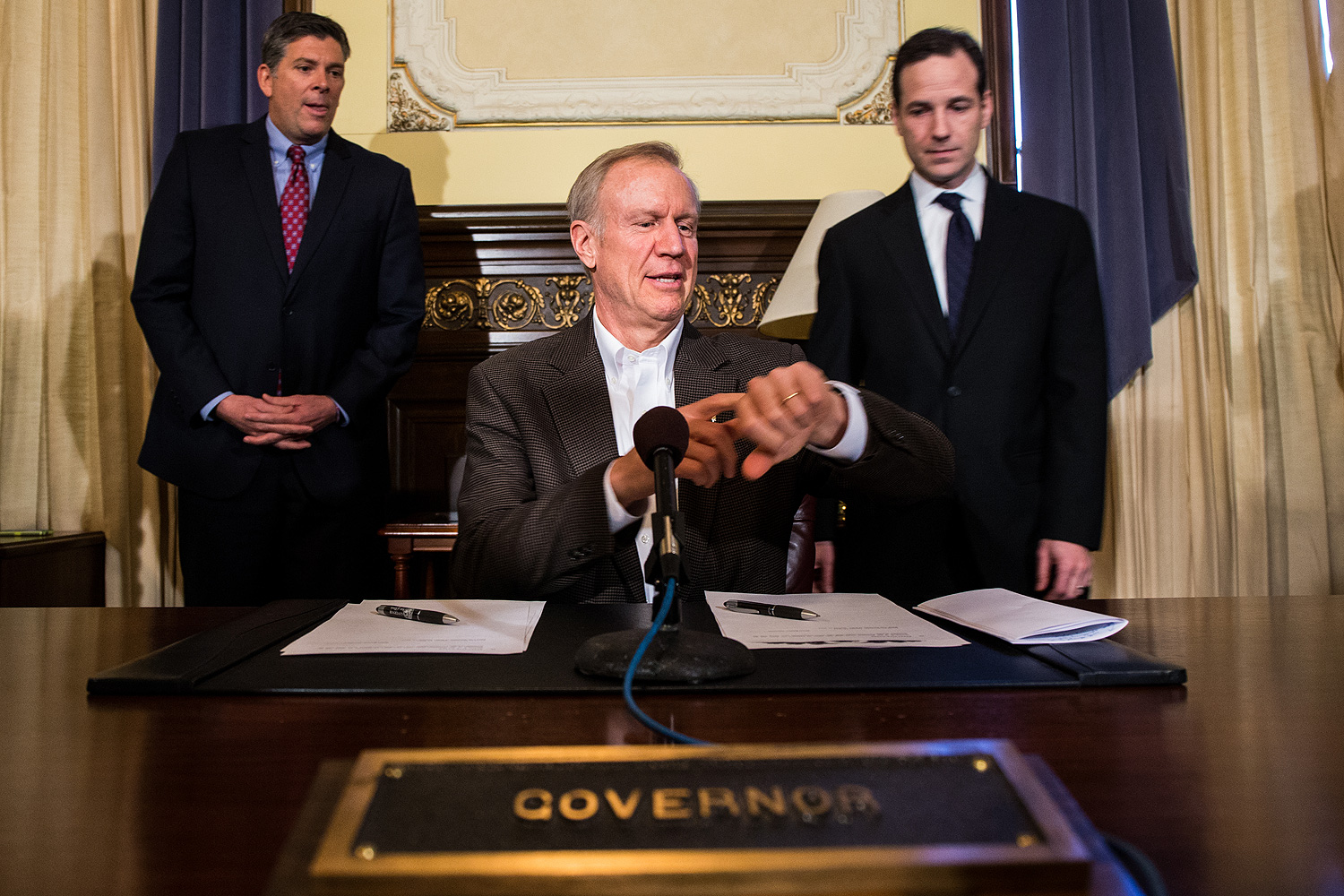Today Bruce Rauner gave a speech in Decatur that seems to preview what he'll address in his forthcoming State of the State address. Because Rauner has been riding unions for awhile, Rich Miller focuses on what Rauner had to say about "freedom states" and "employee empowerment zones." That'll be a thing, as it's been in neighboring states run by governors whom Rauner has cited as political influences.
Since that'll definitely be an issue, I was interested in what's less clear. Amanda Vinicky (officially one of the state's top political journalists) asks:
Key in on the slide; specifically one word. Alone. @GovRauner anti-tax hike message is nuanced. What to make of it? pic.twitter.com/UfjAOXqZ3j
— Amanda Vinicky (@AmandaVinicky) January 27, 2015
As it happens, the New York Times had a front-page story Sunday on how Republican governors are nuancing tax increases these days, prominently featuring another of Rauner's role models, Michigan's Rick Snyder:
At least eight Republican governors have ventured into this once forbidden territory: There are proposals for raising the sales tax in Michigan, a tax on e-cigarettes in Utah, and gas taxes in South Carolina and South Dakota, to name a few. In Arizona, the new Republican governor has put off, in the face of a $1 billion budget shortfall, a campaign promise to eliminate the unpopular income tax there.
“It’s not based on partisanship; it’s based on common sense and good government,” said Gov. Rick Snyder of Michigan, a Republican who has urged voters to support a ballot measure that would raise $1.9 billion by increasing the sales tax and gas tax. “We’ve been underinvesting in Michigan for some time, so I view it as a way to, long term, save us resources.”
OK, a tax on e-cigs is pretty small beer; eight governors out of 31 is not just a minority, but a clear one; and as the story notes a few paragraphs down, "some of the proposed tax increases, like one from the governor of South Carolina, are part of broader proposals that would result in net tax reductions."
But what happened in Michigan is genuinely dramatic—an agreement between Snyder, a huge majority in the House, and a smaller one in the Senate to raise the state sales tax by a percentage point (from six to seven percent, going from a lower general sales tax than Illinois to a higher one) to generate $1.2 billion dollars in revenue.
Rauner has floated specific tax hikes as part of his campaign—specifically, broadening Illinois's narrow menu of taxes on services for a $600 million revenue gain, a substantial amount but one that pales in comparison to the revenue drop that will come as the income-tax hike rides off into the sunset.
Along those lines, you may have seen a recent report about how bad Illinois's budget deficit is; no spoiler alert needed. But the report, from the Fiscal Futures Project, also runs through some of the tax policies available, like wiping out $2.7 billion/year worth of tax credits, taxing $2.3 billion in retirement income (a workaround to pension reduction that's been talked about for awhile), expanding Rauner's service-taxes further to bring in up to $4 billion a year, and so forth.
We'll have to wait for the State of the State address for more on Rauner's tax plans. But if it or future initiatives include a range of new or higher taxes, Rauner wouldn't be the only GOP governor working with Democrats to boost revenues.




